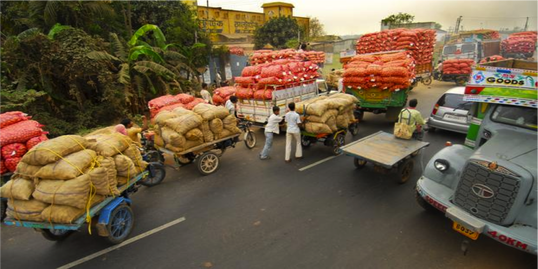Philosophy
|
We are all about Diversification of Asset Management
Diversification helps reduce risks that have no expected return, but diversifying within your home market is not enough. Global diversification can broaden your investment universe. Risk – Return perspective is more than a regulatory requirement: consider the drivers of returns Many investors select mutual funds based on past returns. However, funds that have outperformed in the past do not always persist as winners. Past performance alone provides little insight into a fund’s ability to outperform in the future. Do not use old school prejudice about Non-European economies and risk categories This ignorance can be a negative driver for creating wealth: most Western fund managers follow the herd to survive and use old school learning methods to assess risk-returns provided they have in depth knowledge of non-Western economies and markets. It is the lack of expirience also negatively impacting advisors' view on investing in Emerging economies. Where all risk classification schemes of regulators in Europe were pointing towards Asia as being highly risky, most investors lost their wealth in the so-called less risky jurisdictions such as Europe. The Global Food Security Challenge Achieving sustainable food security in a world with a growing population, changing diets, migration and political turbulence. Even the changing climate is a major challenge. More quality and preferably organic food is needed in the future but climate change means less food production potential and poor people will be hit the hardest. Climate-related crop failures, fishery collapses and livestock deaths already cause economic losses and undermine food security, and these are likely to become more severe as global warming continues. Long-term economic growth, poverty reduction and food security enhancement cannot be achieved without significant investment in the agricultural sector. Agricultural investment is essential to attain rural growth, job creation, the provision of basic necessities and the establishment of a stable foundation upon which broader economic growth can be realised. Moreover, we believe in investing in not only in the beginning of the Agribusiness chain at the seeds’ end, but also in processing and agricultural technologies are really at the heart of food productivity growth. We believe in investing in Food Security in all aspects of the chain. In a region like Africa there is a huge gap to be filled in by institutional support like the UN, where the economy is very weak. We focus on investing the areas where the population is rising, the economic growth has potential, the quality food demand is rising, but where food can also be exported to those regions where there is a structural shortage anyway. This is the Asian region, where we see investment opportunities. Interested in our latest thematic paper on Food Security ? Write to us! |
Special Focus on Asia
There is a strong conviction that Asia's growth would outpace the rest of the world, and that a specialised focus is the best way to participate. Asia is an intricate and evolving region, requiring careful analysis and specialised knowledge to identify the companies and issues that stand to benefit from the changes taking place. We believe that by focusing on opportunities in Asia, and adhering to an investment philosophy that has been tested over 20 years, investors can use a proven pathway into this dynamic region. Our mission is to deliver solutions for investors to participate in in the Asian opportunity. One example of an emerging opportunity is Myanmar! Myanmar is the seventh largest economy of the 10-member ASEAN bloc. It has a large service sector which accounts for about 46% of GDP, with industry and agriculture respectively accounting for 28% and 26% of GDP. Major sectors include processing, manufacturing, construction and transportation. This country’s GDP growth has been robust in recent years. In 2016, GDP growth decelerated to 6.5% due to a slow recovery in the agricultural sector from the 2015 floods and slowing foreign investment. For 2017, GDP growth is expected to grow by 6.9% as private and public investments in infrastructure, light manufacturing and hospitality are projected to rise. Emerging Economies transforming the Balance of Power gradually The faster-growing emerging markets in Asia will also see their overall economic output levels rise significantly by the middle of this century, although they will remain well behind China and the US. In contrast, Europe and Japan will continue to see their relative output levels decline due to lower growth rates. As such, at least in terms of economic power, the focus of attention in the 21st century will be on the Pacific region. The implications of these long-term economic forecasts are significant for the global balance of power. |

